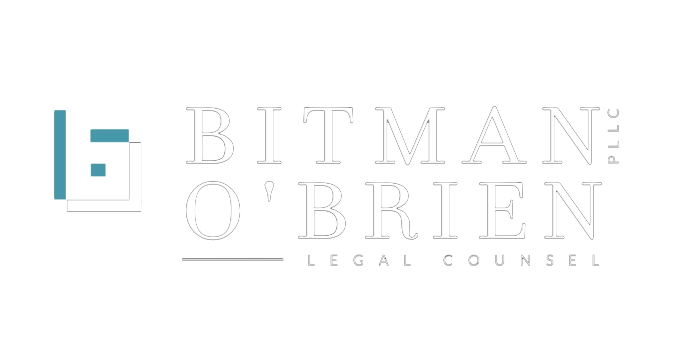Florida’s new Brooke’s Law requires “covered platforms” to set up a takedown process for altered sexual depictions (deepfakes) posted without consent and to remove them when notified. Separately, the federal TAKE IT DOWN Act now requires platforms nationwide to remove reported nonconsensual intimate images—real or AI-generated—within 48 hours of a verified request. Victims in Florida may also sue promoters of altered sexual depictions for injunctive relief and damages.
The Laws That Protect You (Florida + Federal)
Florida criminal + civil remedies (deepfakes) (H3)
Florida Stat. § 836.13 makes it a crime to “promote” an altered sexual depiction of an identifiable person without consent and creates a civil cause of action with injunctive relief and damages of at least $10,000 (or actual damages, whichever is greater). A disclaimer that “this is fake” is not a defense.
Florida sexual cyberharassment (real images)
Florida Stat. § 784.049 separately covers the posting of real intimate images without consent (“revenge porn”).
Brooke’s Law (2025)
Florida’s HB 1161 / SB 1400 (effective June 10, 2025) requires certain platforms to establish a removal process for altered sexual depictions, notify users, take down content, and provides good-faith immunity for platforms that comply. Agencies can treat unreasonable noncompliance as a deceptive practice. Platforms must have processes in place no later than December 31, 2025.
Federal TAKE IT DOWN Act (Public Law 119-12)
Enacted May 19, 2025, it criminalizes publishing nonconsensual intimate images (including deepfakes) and requires platforms to remove reported content within 48 hours, with FTC enforcement and obligations to curb duplicates.
What Counts as an “Altered Sexual Depiction” in Florida?
Florida defines it as a realistic visual that, through digital manipulation or computer-generated nudity, depicts an identifiable person’s nude body parts or sexual conduct they did not actually perform, and it’s shared without their consent.
Step-by-Step: How to Get a Deepfake Removed Fast
- Save proof (don’t share it). Capture URLs, timestamps, and screenshots of the post/profile and search results; record where it’s been reshared.
- Use the platform’s form. Under Brooke’s Law and the TAKE IT DOWN Act, covered platforms must provide a clear removal process. Include your name, a statement of nonconsent, links/handles, and any ID verification the form requests. Ask the platform to remove duplicates/reposts.
- Expect action within 48 hours (federal). The federal law requires removal of reported NCII within 48 hours of a verified request. Follow up on the same ticket.
- Send a lawyer’s notice if ignored. Reference Public Law 119-12 and F.S. § 836.13; demand removal, preservation of evidence, and disclosure of uploader data (where permitted).
- Consider civil remedies. In Florida, you can seek a temporary injunction and statutory/actual damages against promoters under § 836.13; real-image cases may also proceed under § 784.049.
- Preserve evidence for law enforcement. Both Florida and federal law create criminal exposure; do not delete original messages, emails, or DMs from the uploader.
Need help drafting a takedown, injunction, or preservation letter? Our team handles emergency NCII and deepfake matters. See our Practice Areas or Contact to get started.
Platforms Covered & Deadlines
- Florida (Brooke’s Law): “Covered platforms” (websites/online services with user-generated content) must have removal processes in place by Dec 31, 2025 and remove altered sexual depictions upon request; good-faith compliance is protected, and failure can trigger consumer-protection remedies.
- Federal (TAKE IT DOWN): Effective May 19, 2025; platforms must remove reported NCII within 48 hours and take reasonable steps to curb duplicates. Some obligations phase in over the first year.
Florida Civil Options: Injunctions & Damages
Victims of deepfakes can file a civil action under § 836.13(5) for:
- Injunctive relief (court orders to remove/stop promotion),
- Damages of $10,000 minimum or actual damages (whichever is greater), and
- Attorney’s fees and costs.
We regularly pursue emergency injunctions and coordinated platform removals. Learn more about our Litigation & Dispute Resolution services.
Florida vs. Federal: Which Path Should You Use?
- Use both. File the platform request (fastest path to removal) and prepare civil claims to stop continued reposting and recover damages.
- Real images vs. deepfakes: Real images may fall under § 784.049; deepfakes under § 836.13—your lawyer may plead both where facts overlap.
FAQs
How fast will platforms act?
Under the federal law, within 48 hours of a verified request; Florida also imposes duties on covered platforms and treats unreasonable failures as deceptive practices.
Can I sue the person who posted the deepfake?
Yes. Florida creates civil remedies against promoters of altered sexual depictions, including injunctions and statutory damages.
What if the image is “labeled as fake”?
A disclaimer is not a defense under § 836.13(4).
Does the law cover private messaging apps?
Coverage depends on the platform and facts; both laws are broad, but details matter. A lawyer can advise on subpoenas and preservation.
Is this legal advice?
No. This article is for information only. For advice about your situation, contact our team.
What to Do Next (Checklists)
Victim checklist
- Document URLs, handles, and screenshots
- File the platform takedown request immediately
- Send a legal demand citing Public Law 119-12 and F.S. § 836.13
- Consider an emergency injunction; preserve all evidence
General counsel/parents/coaches
- Create an incident protocol (intake → legal → platform takedown → law enforcement)
- Train staff on NCII reporting and 48-hour removal rights
- Maintain a contact list for platform legal/reporting portals
Talk to a Lawyer Today
Deepfakes spread fast—your removal request should be faster. Our team coordinates 48-hour platform removals, injunctions, and civil claims. Explore our Civil Litigation or Contact us for an urgent consult.

